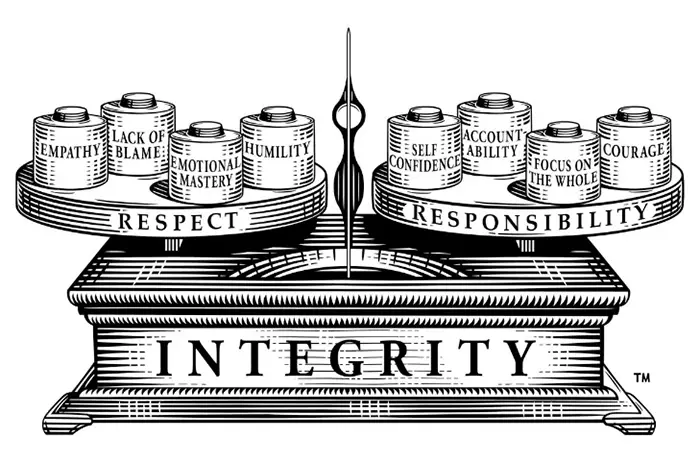
The Leadership Character Model was Developed in 1995 by Robert and Carolyn Turknett, Founders of Turknett Leadership Group
TLG believes that leadership is about character – who you are not what you do. And today when leadership is needed at all organizational levels, it is critical that leadership character be developed and enhanced in all individuals. It is those with leadership character who will contribute to others in powerful ways and help their organizations achieve bottom line results and long-lasting success.

Being a Leader Today is Hard Work.
Even those accustomed to power and responsibility will have to lead in new ways that support and bring forth leadership from all employees. And those who have not yet accepted the challenge of leadership will have to assume a higher level of responsibility for their company’s success. Those who succeed at leadership, whatever their level, will have developed strong leadership character.
An Aid to Leadership Development.
This guiding framework outlines the core qualities that create the kind of underlying character all leaders need. Notice that integrity is the foundation of leadership. Without integrity, leadership behavior rings hollow. Also notice that the leadership scale is balanced between the qualities of respect and responsibility. When there is respect in an organization, everyone feels a sense of partnership, equality and fairness. When responsibility is prevalent, each person is willing to take initiative and act for the good of the entire organization.


Integrity
Character is grounded in integrity. Leaders must be honest, credible and completely trustworthy. A person with integrity doesn’t twist facts for personal advantage, is willing to stand up for what is right, keeps all promises, and can be counted on to always tell the truth.

Respect & Responsibility
Respect helps create a culture of partnership and teamwork. Leaders who demonstrate respect show an unconditional high regard for others, acknowledging their values and people, regardless of their behaviors. Great leaders also accept full responsibility for personal success and for the success of projects, teams, and the entire organization.

Empathy
Leaders earn trust by relating to everyone in the organization with understanding. Empathetic leaders create strong bonds and are seen as less political. A person who demonstrates the core quality of empathy:
- Understands others’ points of view including those that are different from his or her own.
- Shows genuine concern for others.
- Listens with understanding.
- Exhibits respect even when he or she has nothing to gain from the relationship.

Lack of Blame
Good leaders reflect honestly on their own behavior and can admit their mistakes. They don’t become defensive and blame others when things go wrong. Rather than spending time assigning blame, leaders spend time fixing problems. A person who demonstrates the core quality of lack of blame:
- Admits fault when appropriate.
- Doesn’t look for a scapegoat in a crisis.
- Spends time fixing problems, not assigning blame.
- Avoids “us vs. them” thinking.

Humility
Leaders with humility shun pompous and arrogant behavior. They realize that we are all fallible – a combination of strengths and weaknesses. People who demonstrate humility don’t think less of themselves; they just think more of others. A person with the core quality of humility:
- Listens to others with an open mind.
- Doesn’t brag or name-drop.
- Clearly sees and admits his or her limitations and failings.
- Shows vulnerability without fear.
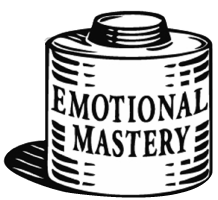
Emotional Mastery
More than 2000 years ago, Epictetus said, “It is not the facts and events that upset man but the view he takes of them.” Leaders who have developed emotional mastery recognize that. Controlling anger may be the most important aspect of emotional mastery for those in powerful positions. Outbursts of anger can quickly destroy a sense of organizational equity and partnership. A person with the core quality of emotional mastery:
- Says what he or she thinks but never berates others.
- Stays calm even in crisis situations.
- Doesn’t let anxiety interfere with public speaking or other critical tasks.
- Reflects before reacting and consciously chooses an appropriate response.
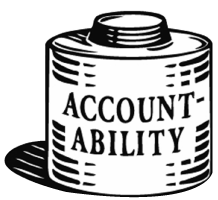
Accountability
Leaders who are accountable do what needs to be done, no matter where in the organization they have to go. They never say, “It’s not my job.” They hold themselves 100% accountable for making relationships work. They don’t say, “Well, I’ll go halfway if they will.” Accountable leaders ask, “What can I do?” not, “Why don’t they…” A person with the core quality of accountability:
- Takes the initiative to get things done
- Is not afraid to hold others accountable.
- Crosses departmental boundaries to help with important projects.
- Takes personal responsibility for organizational success.
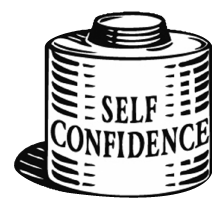
Self-Confidence
Self-confidence allows people to feel that they are equal to others, even when others are in positions of much greater formal power. Self-confident leaders recognize the value of building that same self-confidence in others throughout their organizations and aren’t threatened by confident followers. This widespread self-confidence builds a sense of partnership and helps to maximize energy and efforts at all levels. A person with the core quality of self-confidence:
- Has a self-assured bearing.
- Exhibits flexibility and a willingness to change.
- Gives credit to others easily.
- Tells the truth without fear.
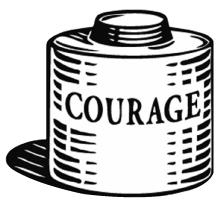
Courage
Leaders with courage assert themselves and take risks. They ask forgiveness rather than permission and try even though they might fail. These leaders risk conflict to air their ideas but balance that with respect, which makes constructive conflict possible. A person with the core quality of courage:
- Champions new or unpopular ideas.
- Talks to others, not about them, when there is a problem.
- Accepts feedback and truly hears what others say.
- Takes the ball and runs with it, even when there are obstacles.

Focus on the Whole
Leaders who focus on the big picture think in terms of what’s good for the entire organization, not in terms of what’s good for their own team or department. They have an understanding of and enthusiasm for the business as well as an understanding of their industry. They consider the implications of entire projects and commit to outcomes that work best for their customers rather than just focusing on their piece of the project. A person who demonstrates the core quality of focus on the whole:
- Realizes he or she represents the company to its customers.
- Understands how work in individual areas affects the entire project and the whole organization.
- Gathers information from all stakeholders when making decisions.
- Shares information throughout the company and understands the value of a knowledgeable workforce.

Value Tales Podcast Series
Value Tales is a podcast series that will feature leaders of character speaking in their own words and sharing their experience and wisdom. We hope that you will enjoy the series and will see the Leadership Character Model living in these leaders and in the lives they touch.

Leadership Character Awards
The Leadership Character Awards were established in 2003. The purpose of the Leadership Character Awards remains constant – to recognize leaders who display character, based on alignment with TLG’s Leadership Character Model.

